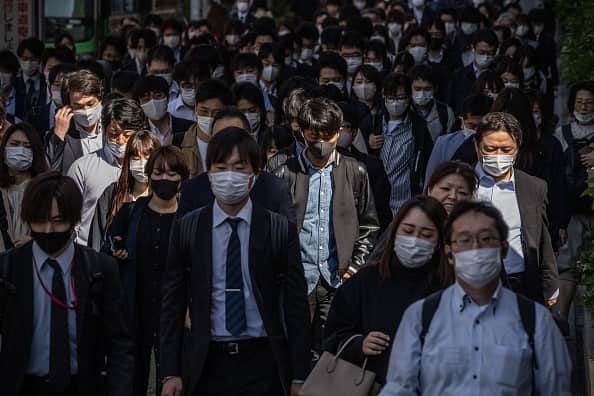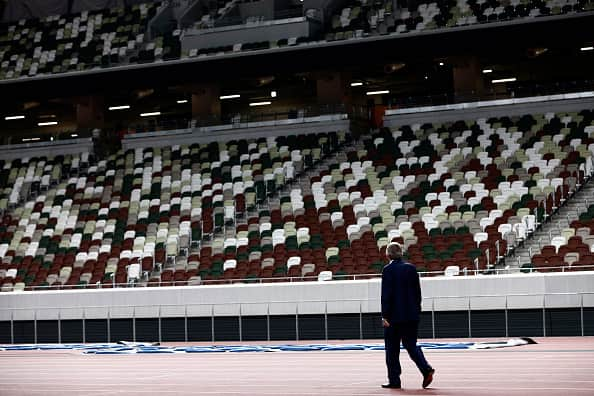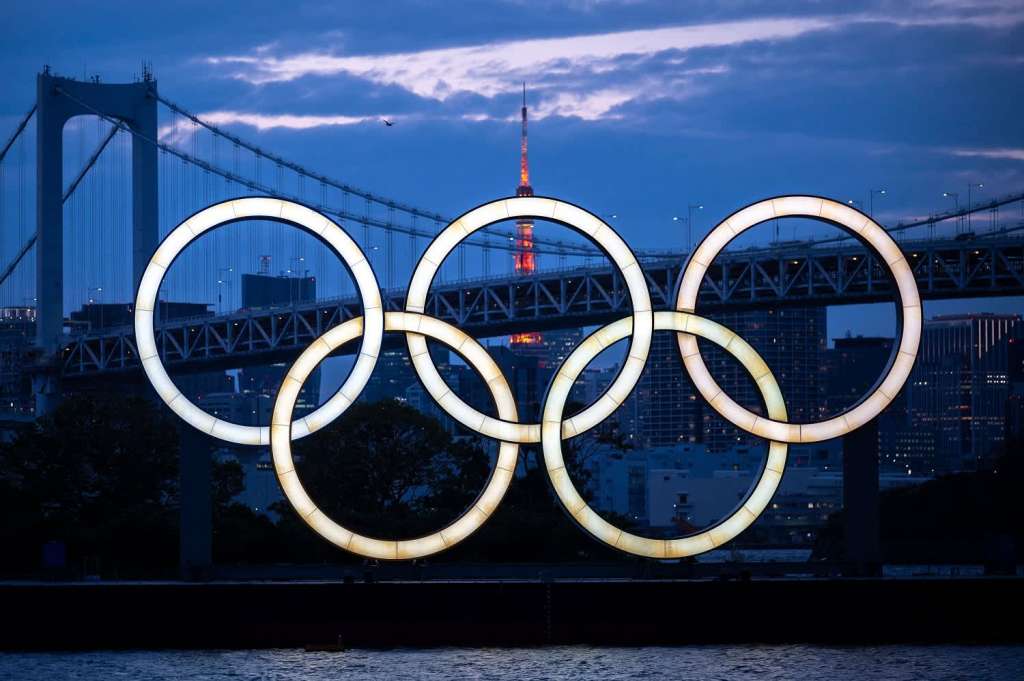This week it was announced that all Australian athletes and officials heading to the Tokyo Olympics will be fast-tracked for vaccination ahead of the games. Over 2,000 Olympians, Paralympians, their coaches and support staff will get the jabs before heading to Japan.
Health Minister Greg Hunt said on Tuesday that he wants “to see our athletes head to Tokyo to compete and then return to Australia safely”.
“This will be a very different Olympics and Paralympics, but our athletes deserve the opportunity to compete,” he added.
The summer Olympics are slated to go ahead in July while the Paralympics are set for August after both games were postponed in 2020 due to the pandemic.
However, with rising case numbers in Japan, and increasing numbers of residents demanding an end to the games, how likely is it that the Olympic Games will actually go ahead this year?
What’s the situation on the ground?

Japan has done really well, relatively speaking, with keeping case numbers and deaths low during the pandemic. They’ve currently had around 558,000 cases and fewer than 10,000 deaths.
That’s pretty good in comparison to the rest of the world but a little scary when looking at it from an Aussie perspective. For reference, we’ve had a total of just under 30,000 cases, most of which were in hotel quarantine, and 910 deaths.
At the start of March, Japan was looking at around 1,000 new cases per day however this new wave has the country spooked. There is currently 4,000-5,000 new cases being reported every day in the country and the government has responded with a hard and fast lockdown in Tokyo and other major outbreak hotspots to try and keep the case numbers under control.
Emergency measures put in place last week have seen bars and some shops close, while big sporting events are being held without spectators. The measures are scheduled to last until May 11. They are however only three months away from the planned opening of the Olympics.
While Tokyo is adamant the games will proceed, surveys conducted within Japan show that the public is not in support. The Kyodo News took a reader opinion poll in January and found that 80% of people want the games to be postponed or cancelled again this year. That was taken at the height of Japan’s third wave of COVID cases.
A second survey by the same paper in March when case numbers were lower found that 58% of readers still did not want the Olympics to go ahead.
How likely is it that the Olympics will happen this year?

Japanese officials are still certain that the Olympics will go ahead this year and preparations are well underway to do so.
Last month, Japan’s Prime Minister Yoshihide Suga renewed a pledge to make the Olympics “proof of the victory against the coronavirus”. Venues and stadiums have been built and are reportedly ready for use and Japan is very much gearing up for an Olympic Games this year.
The International Olympics Committee (IOC) is of a similar opinion and stated in January that “our task is to organise Olympic Games, not to cancel Olympic Games” and that “we are not speculating ‘whether’ the Games are taking place but ‘how’ the Games will take place.”
On Wednesday, the IOC, the International Paralympic Committee (IPC), the Tokyo Organising Committee of the Olympic and Paralympic Games, the Tokyo Metropolitan Government, and the Government of Japan released a joint statement renewing their “full commitment to safe and secure Games for all participants and the Japanese people”.
That being said, the pandemic is already impacting the Olympics this year. Qualifying rounds for the marathon Olympic swim have had to be moved to Portugal and the diving qualifiers have been postponed until May 1.
Several host towns, that have spent millions of dollars preparing to accommodate various teams from around the world, have decided to pull out of their roles due to the increased costs associated with increased COVID restrictions.
North Korea has already decided that it won’t be competing this year and there are many rumblings amongst other national sporting teams that they too could pull out.
To take a position, it looks like the Olympics won’t go ahead this year. Japan was obstinate about the Olympics last year, claiming right up until 60 days before the games were supposed to start that they would be happening. With just 83 days to go, there is still time for everything to change.
With a rising wave of COVID cases in the country, hostility from the Japanese population, and disruption and fear spreading, it seems unlikely that the country will be able to pull it off. If it does miraculously go ahead, however, the games will look very different indeed this year.
What will it look like if it happens?

Japan, the IOC, and the IPC have already stated there will be strict COVID measures put in place to limit the spread of the virus during the games.
The biggest change here is that international fans will not be allowed to attend to cheer on their teams. The domestic-only audience will have crowd numbers in capped stadiums, though official numbers have not yet been decided.
For the athletes, they will not be required to have a COVID vaccination in order to attend, although many countries with access to the vaccines are already making sure that their athletes will.
Athletes will have to have two negative COVID tests before flying to Japan and all athletes, coaches, and support staff will be tested daily for the virus. They will not be allowed to take public transport and will have specific vehicles moving them to and from their destinations.
Athletes and support staff will only be allowed in their rooms and specific isolated venues and areas that will be cut off as much as possible from the rest of the population. That means no restaurants, no travel, and no sightseeing for anyone participating in the games.
The measures are necessarily strict, though it remains to be seen whether they will be sufficient to prevent an outbreak. If there is an outbreak at any of the Olympic villages or residences, it’s unclear how the Olympics will deal with athletes who are ill or recovered. If there is a major outbreak, it seems likely that events will have to be postponed, cancelled, or other athletes substituted for those affected.
Overall, the Olympics this year looks like a very fragile thing indeed. With rising case numbers and uncertainty around exactly how this is all going to work, our money is on the Olympics being off this year.
Read more stories from The Latch and subscribe to our email newsletter.







